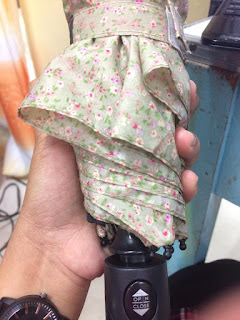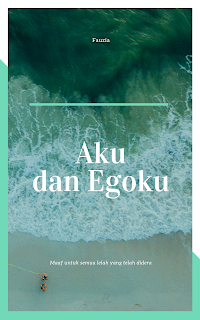#Day3 Neighbour
 |
And good neighbours make a huge difference in the quality of life
|
Every time I introduce myself, I always say that, "... I come from Indonesia, exactly from South Borneo. It means
that we are neighbours. "
Although there are 1,750 km of distance separating Indonesia and the
Philippines, I still want to convey how close the two countries are. In
addition to being both part of Southeast Asia, Indonesia and the Philippines
also have some things in common, especially in vocabulary.
But, before I discuss some of the vocabulary in Tagalog that has the same
sound and meaning with Bahasa (Indonesian Language). I will tell a little about
the people perspective here when they first saw me.
Most of them said that I had the appearance of a native servant here, so
that not infrequently, they speak to me in Tagalog. This made me silent for a
split second, then said sorry and asked them to speak in English.
"I am so sorry, Po,
actually I can't speak Tagalog or Ilocano, would you like to make a
conversation with English."
"Oh, yes,
yes. I am so sorry, I think you are Filipino. "
Well, actually I also found a lot of Filipinos who have facial contours and
even stature with Indonesians. That is the reason, I say that I and they are
neighbours.
As a neighbour, there will certainly be some similarities found, as is the
case with similar vocabulary as I have mentioned before. I will discuss some of
them.
1. Lima
 |
| Five-Lima-Lima |
In English we say Five. In Bahasa we say five with Lima. And apparently, in the Philippines we also call it Lima.
2. Anak
This vocabulary is very memorable in my ears and memories. A teacher in
Saint Louis University who also became my Supervisor Instructor during my life here
always called his students as “Anak"
The word "Anak" which is embedded in the call to the students
shows affection and love like a mother's affection for her children.
When juxtaposed with Indonesian, we will also find the same pin, which is
"Nak". "Nak" is an abbreviation of "Anak" also used by parents
and teachers in Indonesia especially in my hometown to show affection and for
their children and students.
3. Ading
One more word that sounds so familiar to my ears is "Ading"
The word “Ading” refers to a call to younger siblings, both brothers and
sisters.
In the Banjar language (Banjar is my home town), the word “Ading” also has
the same meaning. Sometimes it is directed by an older person to respect and
appreciate his or her younger sibling.
4. Sayang
The word "Sayang" by people
here is used to describe remorse or regretting for something that should not
have happened. Once, I told I story to my friend, who is a native of Baguio. I
told her that my teaching practicum today was not taken because my assessment
on that day was considered as peer teaching. Shortly after hearing my story, she
muttered softly, "Ah, sayang."
Same, right? In Bahasa, we also
say "Ah, sayang” to represent something that should not have happened.
5. Payong
 |
| Umbrella-Payong-Payung |
September in Baguio gave a very
strong memory to the noun, Payong. In the middle of the month, Payong becomes
very valuable, gold, and its price would be more expensive than the price of a
sweater.
Yes, Payong in Tagalog means Payung
in Bahasa.
6. Ako
We replace the last letter O with
U, and form “Aku”. Ako and Aku refer to
the meaning of "I" in English.
Similarly, in Bahasa we designate
an object that is far from our position with the word "Itu” and in Tagalog
we say “Ito”
The change in letter O to U seems
to be one of the characteristics in the vocabulary similarity between Bahasa
and Tagalog.
7. Bayad
My visiting to one of the
attractions in the Atok area, Beguet, a few days ago made me find that
vocabulary. At that time I was looking for public toilets or people here called
it with Rest Room. In front of the door of the public toilet, there is a
container or bowl containing coins and a piece of paper that says
"Bayad"
Seconds that I realized the term “Bayad”
in Tagalog refers to “Bayar” in Bahasa.
Well, those are the seven
vocabulary words that I hear most often in Baguio. The seven vocabularies
became very familiar to my ears because it turned out that I and those who were
here, we are very close neighbours.



Komentar
Posting Komentar